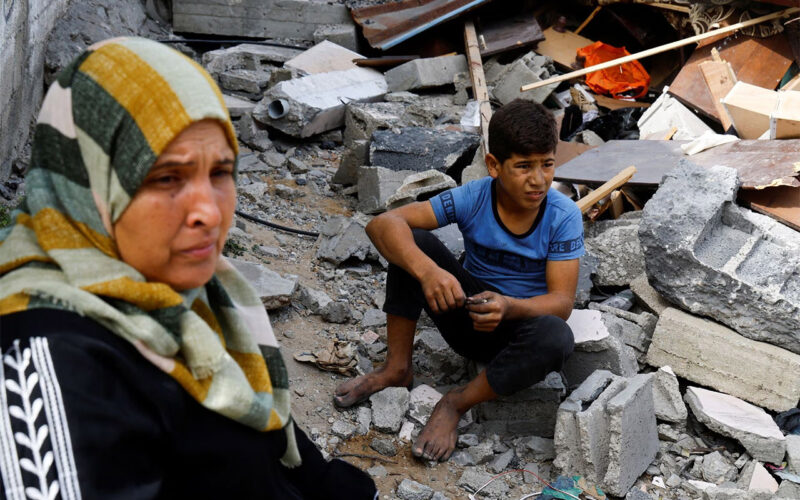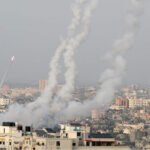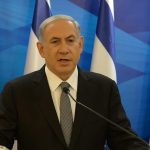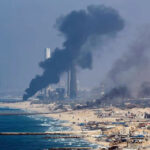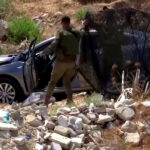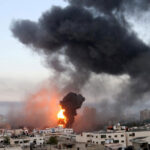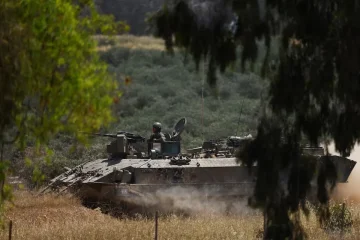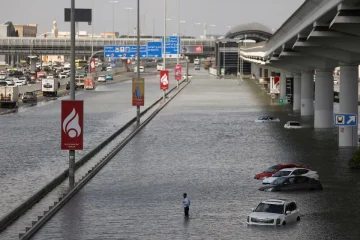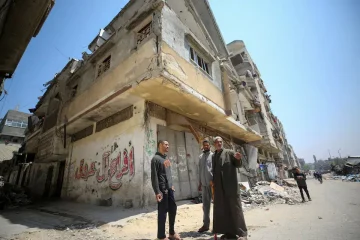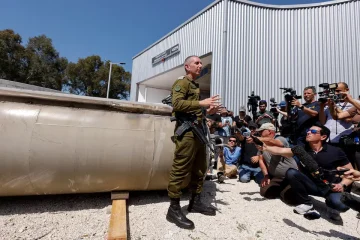A Palestinian armed group fired rockets towards Jerusalem for the first time in fighting this week, and Israel killed another militant leader with its air strikes in Gaza, while Egypt tried to forge a ceasefire.
Rocket sirens sounded in the town of Beit Shemesh and elsewhere in the hills outside Jerusalem, ending a 12-hour lull in fighting. Brief explosions could be heard in Jerusalem, possibly from Israeli missile defences intercepting the rockets.
The Israeli military said two rockets had been fired toward the Jerusalem area but did not confirm if they were intercepted. Local media reported that air defences shot them down. Israeli towns near the Gaza border also came under renewed fire. No injuries were reported.
Shortly afterwards, Israel resumed air strikes against the Islamic Jihad militant group in the Gaza Strip.
A senior leader, Eyad Al-Hasani, and his aide were killed in a strike on a Gaza apartment. Hasani was the sixth member of Islamic Jihad’s top military council to be taken out by Israel this week.
Israeli forces launched an air strike campaign against the Islamic Jihad leadership in the early hours on Tuesday, accusing them of planning attacks on Israel. Islamic Jihad, the second largest armed group in Gaza after the ruling Islamist Hamas, has since fired almost 1,000 rockets, some deep into Israel.
At least 33 Palestinians in densely populated Gaza, including women and children, have been killed in the past three days, while one person in Israel was killed when an apartment was struck by a rocket in a Tel Aviv suburb.
In Gaza, a small impoverished coastal territory blockaded by Israel and Egypt since 2007, people woke up to empty streets, and many were keen for a respite after days of explosions.
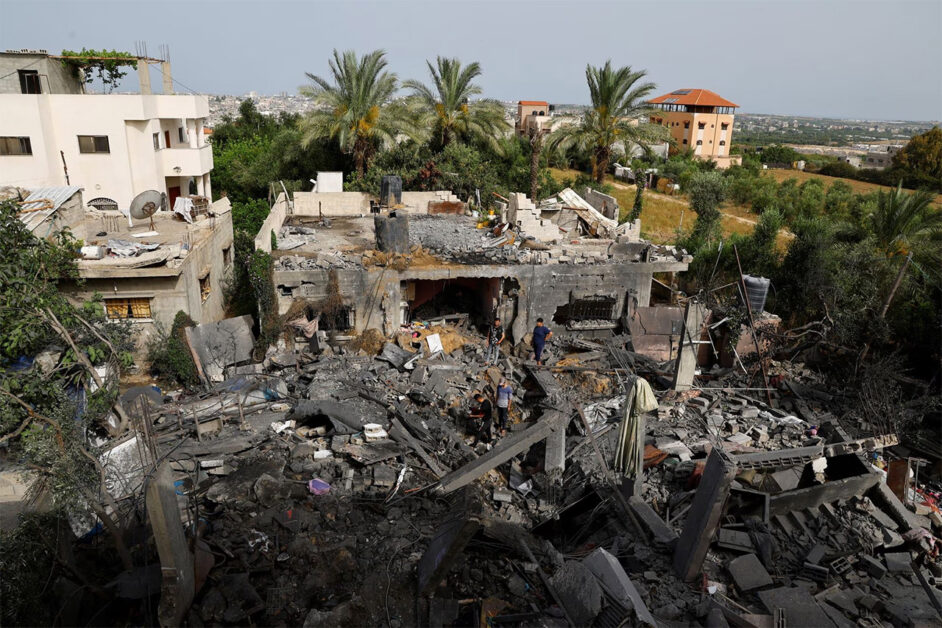
‘OUR LIFE HAS STOPPED’
Amin Abuelkheir hoped to reopen his fish restaurant after closing it four days ago. “Our life has stopped, the sea is closed to us, and we have stock that we are unable to sell. We hope there will be a truce,” Abuelkheir said.
Israelis, still on alert, ventured away from shelters at the start of the weekend to make Sabbath preparations after hours of quiet. But they again ran for cover when sirens pierced the late-morning calm.
The latest flare-up caps more than a year of resurgent Israeli-Palestinian violence that has killed more than 140 Palestinians and at least 19 Israelis and foreigners since January in a seemingly never-ending cycle.
Islamic Jihad spurns co-existence with Israel and preaches its destruction. Top ministers of Israel’s current religious-nationalist government rule out any state sought by Palestinians in territories captured by Israel in the 1967 Middle East war.
Israel’s military said that almost 200 Palestinian rockets had misfired and that such failed launches had killed four people inside Gaza, including a 10-year-old girl. Islamic Jihad denied that its rockets had misfired or caused deaths in Gaza.
As Egypt pressed on with mediation efforts, two Palestinian officials familiar with the talks said the sides were debating a draft proposed by Cairo.
Among truce terms, Islamic Jihad wants Israel to commit to ending strikes against its leaders. Israel has rejected that. Israel appeared to be hoping that Islamic Jihad if depleted of rockets and commanders, would halt hostilities unilaterally.
At least 110 people have been injured in the Israeli air strikes that destroyed a number of buildings and damaged more than 300 apartments in Gaza, where residents have been experiencing decades of a worsening humanitarian crisis.
Israel occupied the Gaza Strip and the West Bank in the 1967 war, as well as East Jerusalem which Palestinians want for their capital. Israeli forces and settlers withdrew from Gaza in 2005. Statehood talks between Israel and the mainstream Palestinian Authority, based in the West Bank, have been frozen since 2014.

